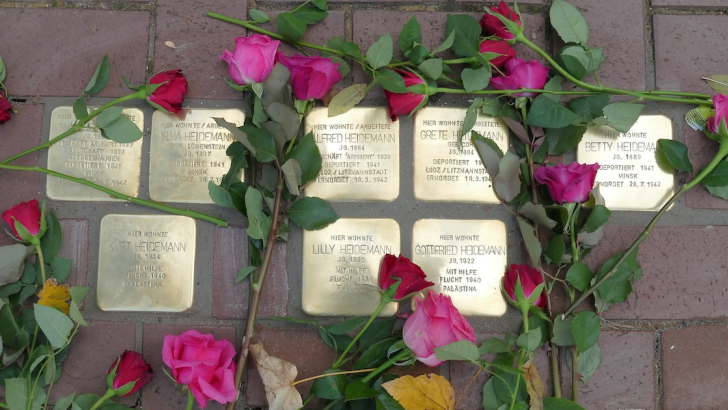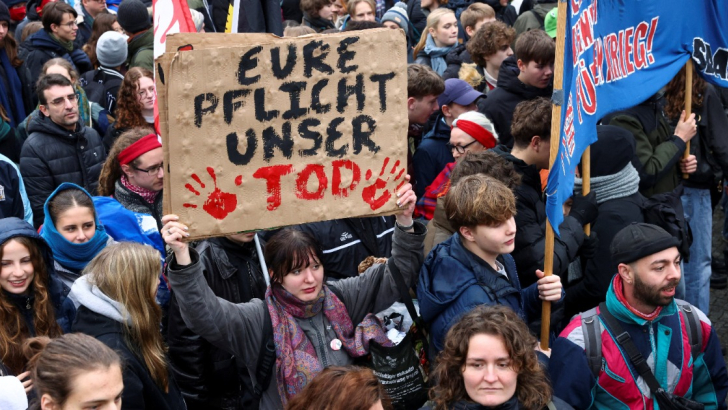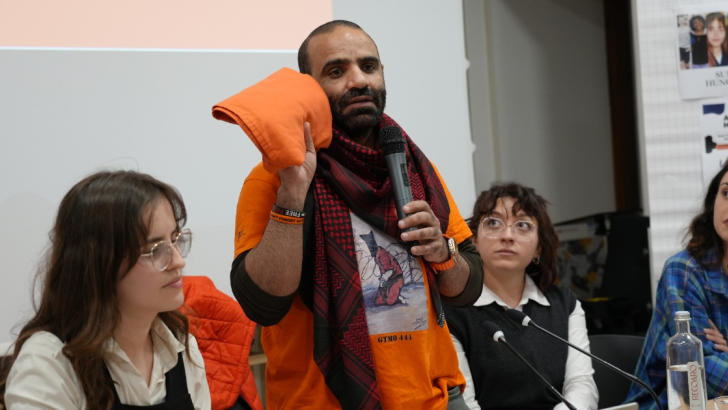Ukraine’s New Normal: Historian Yaroslav Hrytsak on the War, Europe, and the Power of Memory
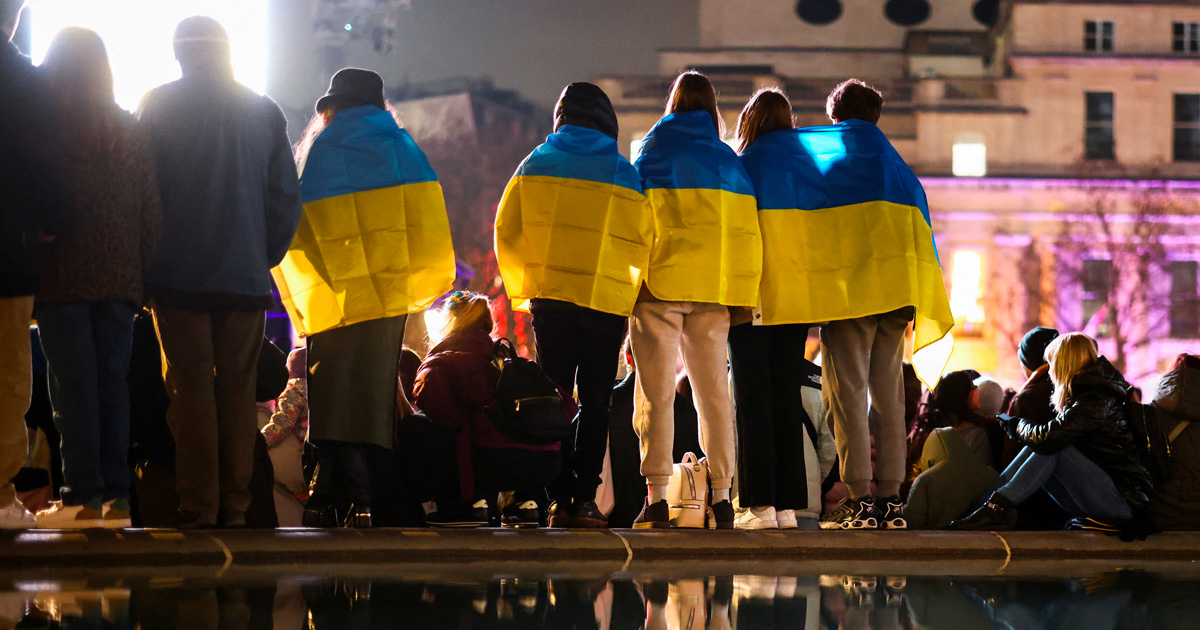
When Yaroslav Hrytsak arrived in Padua this October, it was not just as a visiting scholar but as a witness to history in motion. A leading voice in Ukrainian historiography and professor at the Ukrainian Catholic University in Lviv, Hrytsak presented a lecture titled Ukraine Today: War, Challenges, Perspectives, in an event hosted at the Biblioteca Civica in collaboration with the University of Padua’s Department of Historical, Geographical, and Antiquity Sciences (DiSSGeA).
Speaking to Il Bo Live, he reflected on Ukraine’s resilience — and on history as a form of inner resistance. “As a Ukrainian, I live on an emotional roller coaster. Some days I’m depressed, other days optimistic — it depends on the news. What helps me is being a historian. History gives meaning to chaos; it helps make sense of uncertainty. In times like these, the humanities are essential — they keep you strong and going”.
Professor Hrytsak, how do Ukrainians feel today: are they tired or still determined to resist?
There has been a shift in public perception: people now see the war as the new normal. Some expected it could end fast with Trump’s return, but that illusion is gone. The war will drag on, and Ukrainians are ready to accept that. That’s sad, of course.
Military experts do not predict beyond six months. For that time, Ukraine will stand; after that, we cannot be sure. Still, Ukraine has already stood for years.
How do Ukrainians view Trump’s recent attempts at proposing a peace plan?
I wish I were wrong, but I don’t see how his approach could succeed. Most of what he says makes little sense to Ukrainians. This conflict is an existential issue for us, not a deal to be negotiated.
Can Ukraine continue to resist despite the enormous cost?
Nobody knows. The costs — human lives, infrastructure, energy — are already huge. Putin’s message is clear: if he cannot have Ukraine, no one should. His goal is to destroy Ukraine if he cannot win it.
And yet, Ukraine is still standing. It’s a miracle. I wonder if any other European nation today could withstand such a terrible war for so long.
We often focus only on Ukraine’s weaknesses and forget Russia’s. Russia, too, is severely weakened — economically, politically, socially. So, let’s wait and see. This is a competition: who will collapse first? So far, Ukraine is standing.
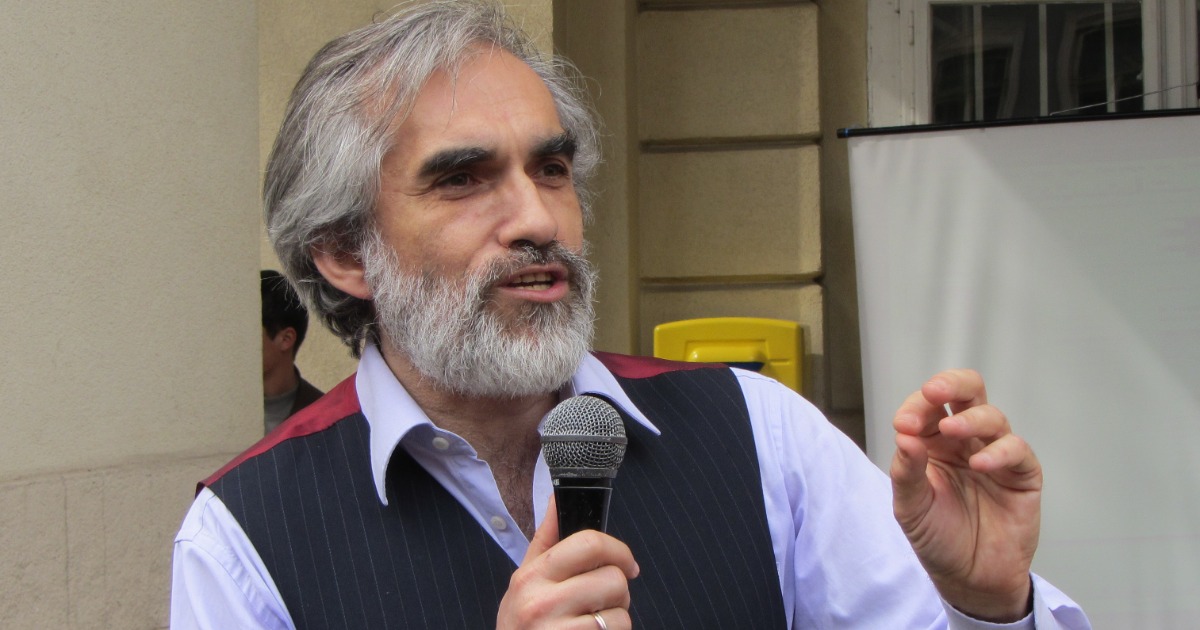
You once said: With Ukraine, Russia is a superpower like the U.S.; without Ukraine, it’s more like Canada.
Without Ukraine, Russia could become a normal state, like Germany after WWII, without imperial ambitions. The core issue is whether Russia can stop being an empire. Putin wants to “make Russia great again” — very similar to Trump’s slogan.
What is Russia really trying to achieve? Territorial control, destabilizing Europe, or destroying Ukraine as a nation?
I’d say “Putin and his regime,” not Russia. This is Putin’s personal war, his obsession. He believes he is fighting the West, using Ukraine as the battlefield. Control of Ukraine is central to his vision of restoring Russia as a great power.
Do Russians bear responsibility for accepting this war?
Yes. Responsibility requires honesty and courage, and we haven’t heard such voices. They are not innocent. But the key decisions are Putin’s, just like under Stalin — it’s his war.
And I also blame Russian liberals: many still think in imperial terms. They cannot say farewell to the empire. In this sense, they are very different from Polish liberals.
In your lecture, you spoke of a strategic victory even without a classical military one. What do you mean?
This war is not classical. The front hardly moves — maybe comparable to WWI — but drones have changed everything.
Ukraine may not win traditionally, but it can neutralize Russia’s capacity to win — as it has done in the Black Sea with the Russian fleet. That would be victory: blocking Russia’s strategic aims.
“ Putin thinks he is fighting the West, using Ukraine as the battlefield. This is not only a war against us: it’s a challenge to the entire international order
What should the EU do, militarily and politically?
The question isn’t what the EU should do for Ukraine — but for itself.
If Trump abandons or weakens NATO, Europe must ensure its own security. The EU has been a political and economic success, but now security is the key issue.
Ukraine is not a problem — Ukraine is a chance. It has the largest and most battle-experienced army in Europe. If the EU wants to become a true security union, Ukraine is essential.
Why is this war so important for the global balance?
Putin is challenging the international order based on the right of nations to secure their borders. The EU turned Europe into a “no-war zone”. If Putin succeeds, borders could again be changed by force — triggering a domino effect.
This war is not only about Ukraine: it’s about the future of a system that limits military conflicts. And right now, that system looks uncertain.
You mentioned a new Ukrainian generation and Zelensky’s role in it.
Zelensky represents a new leading force: the urban middle class that grew up after the Soviet collapse. Educated, numerous, Western-oriented. Even when Russian-speaking, they see their future in Europe. This class is the backbone of today’s Ukraine — politically, economically, militarily, culturally. It’s independent Ukraine’s greatest achievement.
But war has frozen political competition. Zelensky holds a large majority — not authoritarian, but a monopoly. The challenge is to renew political life: a project that strengthens society and accelerates EU integration.
Potential leaders exist, like former commander-in-chief General Zaluzhny, who is popular and charismatic. The next major rivalry will be between Zelensky and Zaluzhny. They may differ, but both strongly support EU and NATO integration. Their competition will shape Ukraine after the war.







